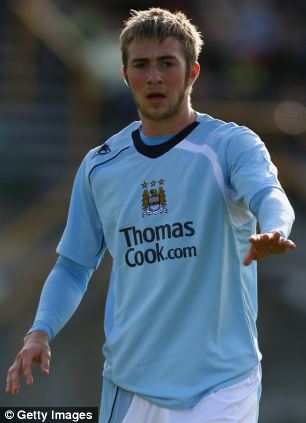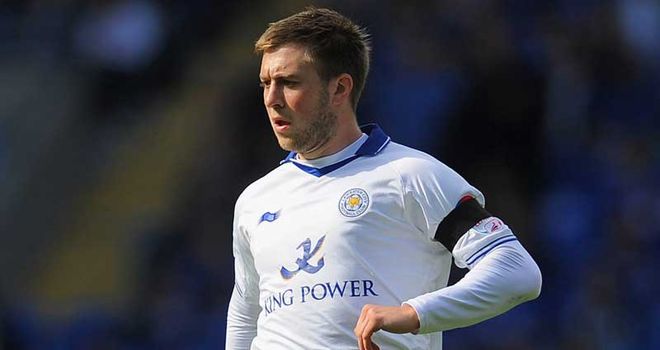Decent article
http://m.guardian.co.uk/sport/blog/2012/jun/02/daniel-taylor-michael-johnson?cat=sport&type=article
Lee Sharpe tells a story, going back to his days at Manchester United, of sitting in the canteen one day and hearing a dull, repetitive thud outside. Eventually he went out to investigate and was bemused to find Gary Neville, on his own, throwing a ball against the gym wall. "As hard as he could, over and over again," Sharpe recalls. "Practising long throws, Gary Neville's idea of fun."
Not quite. This was not Neville's idea of fun, more the realisation of what he had to do to make the best of himself. Another time, Sharpe remembers Neville abandoning a night out after his team-mates suggested they went to a nightclub. "He said he didn't like nightclubs. 'Sorry,' I said. 'Run that past me again, Gary. You don't like nightclubs? In nightclubs there's beer, decent music, women, what exactly is there not to like?' But he was insistent: 'No, I don't like nightclubs, they're not my scene.' And off he toddled."
It is easy to mock, or patronise, but only if you want to overlook the fact it was this form of dedication that helped Neville make almost 600 appearances for the club, as well as winning 85 England caps. In football, as Neville always appreciated, it needs more than just talent to sustain a career at the top. Sharpe had a different outlook and, without wishing to be cruel, his Wikipedia page now describes him as "best known for appearing in Celebrity Love Island". Or consider what has happened to Michael Johnson and, specifically, where he was supposed to be at this point in his life and what, in reality, has come of him now we are rubbernecking at what's left of his career.
Johnson is just one of countless young players to lose their way in the system, but his is an extreme case and anyone who saw him burst on to the scene at Manchester City will understand why it is so deflating now to find his career in such a steady form of deterioration.
Yes, Johnson was 18 at the time but he played with an elegance, control and appreciation of space that left City supporters of a certain generation making comparisons with Colin Bell. "FEC", they used to call Johnson: Future England Captain.
Liverpool, the Champions League winners at the time, wanted to sign him for £10m, back in the days when that was an implausible amount of money for a teenager. One particular memory stands out: Sven-Goran Eriksson, a manager who has worked with a Who's Who of gifted footballers, holding court at the bar of the Manchester Radisson, offering a £50 bet that Johnson would play in at least one World Cup. The teenager was, according to Eriksson, the outstanding player of his age in English football.
Now 24, the midfielder has endured a cruel run of injuries since then, but there are other reasons why he has not started a league game for City for almost four years. At City they talk about someone who became "big-time" and started spending too much time in nightclubs and casinos. At times they could not understand why he was not fit to play when the medical staff could not find an obvious problem. They tell the story of being so embarrassed by his pen-pic one season – bloated, unshaven, rough – they asked the photographer to come back to take it again. The original, to quote one member of City's staff, looked "more like an Oasis roadie" than a professional sportsman.
Over time, City's coaching staff concluded Johnson simply did not have the mentality to be a footballer at the highest level. He was moved to Leicester City last year, on a season-long loan that cost the Championship club £1m, but was signed off, then sent back, by January. After that, almost nothing had been heard of him until on Thursday, at 3.50am, his Mercedes hit another car, then crashed into a wall. "Manchester City star in drink-drive arrest," the Manchester Evening News reported. Except that Johnson has not been a "Manchester City star," in the truest sense, for a long time. He was nowhere to be seen when Roberto Mancini's team won the league, or during the open-top bus parade. His last appearance? A second-half substitute, in a Carling Cup tie against Scunthorpe, in October 2009.
Maybe it all happened too quickly. Johnson had an awful lot of exposure at an early age and, unless you are in that position, it is difficult to comprehend all the different pressures and temptations. All we can really say for certain is that it is a terrible waste. In different circumstances, this should have been the point of his career when he was established as an England player, looking forward to playing in the European Championship. England, as we have seen, are hardly spoilt for choice when it comes to central midfielders.
Hypothetical now, though. Johnson signed a five-year contract in 2009, which means City are lumbered with him for the time being. They would get rid of him in a shot if they could and, beyond that, who can really say where he would be washed up?
Whatever happens, it is a sorry tale about what can happen when a young footballer has the right ability but the wrong attitude – and, in the process, we are reminded again that there is nothing quite so depressing as talent going to waste.
http://m.guardian.co.uk/sport/blog/2012/jun/02/daniel-taylor-michael-johnson?cat=sport&type=article
Lee Sharpe tells a story, going back to his days at Manchester United, of sitting in the canteen one day and hearing a dull, repetitive thud outside. Eventually he went out to investigate and was bemused to find Gary Neville, on his own, throwing a ball against the gym wall. "As hard as he could, over and over again," Sharpe recalls. "Practising long throws, Gary Neville's idea of fun."
Not quite. This was not Neville's idea of fun, more the realisation of what he had to do to make the best of himself. Another time, Sharpe remembers Neville abandoning a night out after his team-mates suggested they went to a nightclub. "He said he didn't like nightclubs. 'Sorry,' I said. 'Run that past me again, Gary. You don't like nightclubs? In nightclubs there's beer, decent music, women, what exactly is there not to like?' But he was insistent: 'No, I don't like nightclubs, they're not my scene.' And off he toddled."
It is easy to mock, or patronise, but only if you want to overlook the fact it was this form of dedication that helped Neville make almost 600 appearances for the club, as well as winning 85 England caps. In football, as Neville always appreciated, it needs more than just talent to sustain a career at the top. Sharpe had a different outlook and, without wishing to be cruel, his Wikipedia page now describes him as "best known for appearing in Celebrity Love Island". Or consider what has happened to Michael Johnson and, specifically, where he was supposed to be at this point in his life and what, in reality, has come of him now we are rubbernecking at what's left of his career.
Johnson is just one of countless young players to lose their way in the system, but his is an extreme case and anyone who saw him burst on to the scene at Manchester City will understand why it is so deflating now to find his career in such a steady form of deterioration.
Yes, Johnson was 18 at the time but he played with an elegance, control and appreciation of space that left City supporters of a certain generation making comparisons with Colin Bell. "FEC", they used to call Johnson: Future England Captain.
Liverpool, the Champions League winners at the time, wanted to sign him for £10m, back in the days when that was an implausible amount of money for a teenager. One particular memory stands out: Sven-Goran Eriksson, a manager who has worked with a Who's Who of gifted footballers, holding court at the bar of the Manchester Radisson, offering a £50 bet that Johnson would play in at least one World Cup. The teenager was, according to Eriksson, the outstanding player of his age in English football.
Now 24, the midfielder has endured a cruel run of injuries since then, but there are other reasons why he has not started a league game for City for almost four years. At City they talk about someone who became "big-time" and started spending too much time in nightclubs and casinos. At times they could not understand why he was not fit to play when the medical staff could not find an obvious problem. They tell the story of being so embarrassed by his pen-pic one season – bloated, unshaven, rough – they asked the photographer to come back to take it again. The original, to quote one member of City's staff, looked "more like an Oasis roadie" than a professional sportsman.
Over time, City's coaching staff concluded Johnson simply did not have the mentality to be a footballer at the highest level. He was moved to Leicester City last year, on a season-long loan that cost the Championship club £1m, but was signed off, then sent back, by January. After that, almost nothing had been heard of him until on Thursday, at 3.50am, his Mercedes hit another car, then crashed into a wall. "Manchester City star in drink-drive arrest," the Manchester Evening News reported. Except that Johnson has not been a "Manchester City star," in the truest sense, for a long time. He was nowhere to be seen when Roberto Mancini's team won the league, or during the open-top bus parade. His last appearance? A second-half substitute, in a Carling Cup tie against Scunthorpe, in October 2009.
Maybe it all happened too quickly. Johnson had an awful lot of exposure at an early age and, unless you are in that position, it is difficult to comprehend all the different pressures and temptations. All we can really say for certain is that it is a terrible waste. In different circumstances, this should have been the point of his career when he was established as an England player, looking forward to playing in the European Championship. England, as we have seen, are hardly spoilt for choice when it comes to central midfielders.
Hypothetical now, though. Johnson signed a five-year contract in 2009, which means City are lumbered with him for the time being. They would get rid of him in a shot if they could and, beyond that, who can really say where he would be washed up?
Whatever happens, it is a sorry tale about what can happen when a young footballer has the right ability but the wrong attitude – and, in the process, we are reminded again that there is nothing quite so depressing as talent going to waste.





















 . Do you remember the massive heads they put on the small bodies?
. Do you remember the massive heads they put on the small bodies? 

